How Can You Keep Rid Of Bokashi Waste When You Live In An Apartment
Ten elementary ways to act on climatic change

We know that climate change is happening – simply there are enough of things individuals can do to aid mitigate information technology. Hither'southward your handy guide to the most constructive strategies.
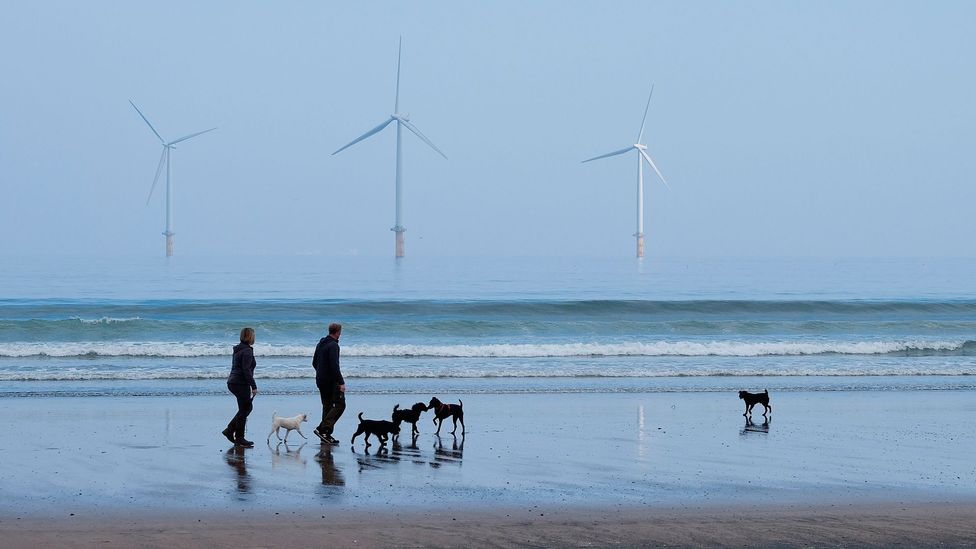
To mitigate climate change, the number one goal is to replace fossil fuels with renewable energy sources (Credit: Getty)
The road towards that transition includes daily decisions inside your reach – like driving and flying less, switching to a 'greenish' free energy provider and changing what you eat and buy.
Of form, it's truthful that climate modify won't be solved by your buying or driving habits lone – although many experts concur these are of import, and tin can influence others to make changes too (more on that afterward). Other changes are needed that can only exist made on a bigger, organisation-wide footing – like revamping our subsidy system for the energy and food industries, which continue to reward fossil fuels, or setting new rules and incentives for sectors similar farming, deforestation and waste management.
Ane expert example of the importance of this regards refrigerants. An advancement group of researchers, business-people and NGOs chosen Drawdown plant that getting rid of HFCs (chemicals used in fridges and air-conditioning) was the number-1 about effective policy to reduce emissions. That's because they are up to 9,000 more warming for the atmosphere than CO2. The good news is that nosotros have made global progress on this, and two years ago 170 countries agreed to start phasing out HFCs in 2022.
This is important because nosotros need "unprecedented changes in all aspects of society to bargain with climatic change, says the IPCC report. "Everyone is going to have to exist involved," says Debra Robert, co-chair of the Intergovernmental Console on Climatic change (IPCC), the grouping tasked with the report.
2. Changing how industries are run or subsidised doesn't sound like anything I can influence... can I?
You can. Individuals demand to exercise their rights both every bit citizens and equally consumers, Robert and other experts say, putting pressure level on their governments and on companies to make the system-wide changes that are needed.
Another manner, increasingly undertaken by universities, faith groups and recently even at a countrywide level, is to 'divest' funds out of polluting activities – such as fugitive stocks in fossil fuels, or banks that invest in high-emission industries. Past getting rid of financial instruments related to the fossil fuel industry, organisations can both take climate action and reap economic benefits.
3. Other than that, what's the best daily action I can have?
One 2022 study co-authored past Lund University's Nicholas ranked 148 private deportment on climate change according to their bear on. Going auto-free was the number-ane most effective activity an private could have (except non having kids – merely more than on that on that afterward). Cars are more polluting compared to other means of transportation like walking, biking or using public transport.
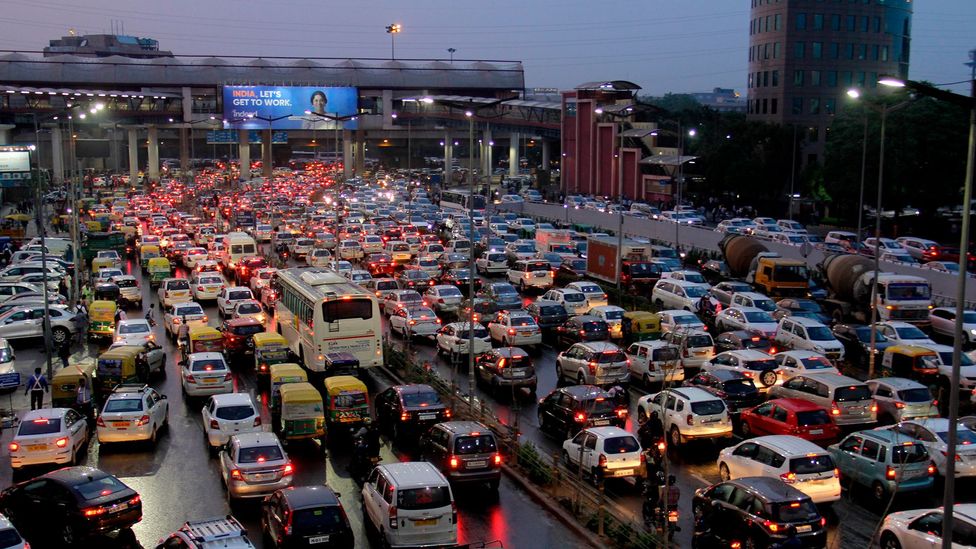
One ranking plant that going machine-free is the most effective action one person can take (Credit: Getty)
In industrialised countries such equally European nations, getting rid of your car tin can reduce 2.5 tonnes of CO2 – about one-quaternary of the average yearly emissions (nine.two tonnes) contributed by each person in developed countries of the Organization for Economic Co-operation and Evolution (OECD).
"Nosotros should cull more efficient vehicles and, whenever possible, switch directly to electric vehicles," says Maria Virginia Vilarino, co-author of the mitigation chapter in the IPCC's latest study.
4. But isn't renewable energy extremely expensive?
Actually, renewables like air current and solar are becoming increasingly cheap beyond the world (although concluding costs are subject to local circumstances). The latest report from the International Renewable Energy Agency (Irena) found that several of the most unremarkably used renewables, like solar, geothermal, bioenergy, hydropower and onshore wind, volition be on par with or cheaper than fossil fuels by 2022. Some are already more cost-effective.
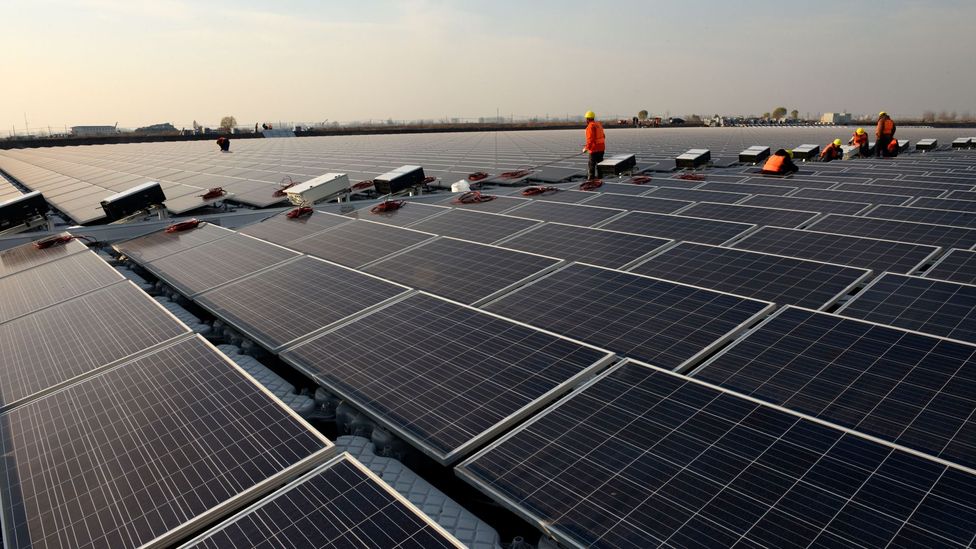
Solar energy is now the cheapest source of electricity for many households in Latin America, Asia and Africa (Credit: Getty)
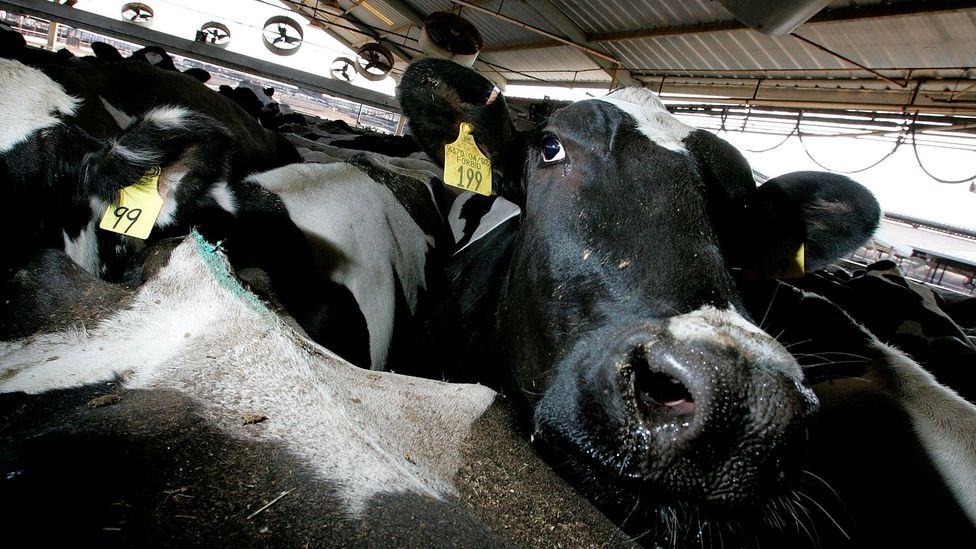
If cattle were their own nation, they'd be the world's third largest emitter of greenhouse gases (Credit: Getty)
The meat industry contributes to global warming in iii major ways. Firstly, cows' burping from processing food releases lots of marsh gas, a greenhouse gas. Secondly, we feed them with other potential sources of food, like maize and soy, which makes for a very inefficient process. And finally, they also require lots of water, fertilisers that tin can release greenhouse gases, and plenty of land – some of which come from cleared forests, another source of carbon emissions.
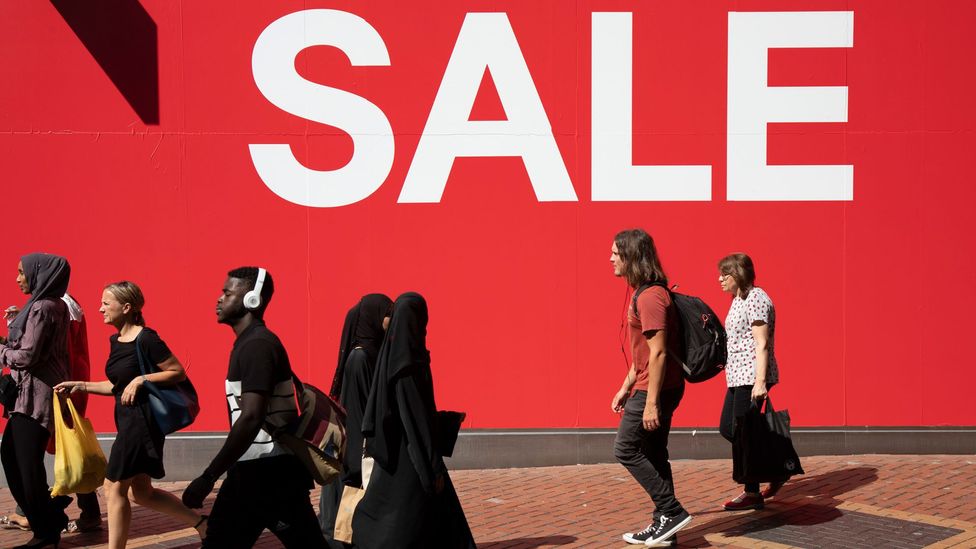
The clothing sector makes upwards about 3% of the world's CO2 emissions (Credit: Getty)
International send, including maritime and air shipping, too has an impact. Groceries shipped from Chile and Australia to Europe, or the other style around, have more 'nutrient miles' and commonly a higher footprint than local produce. Just this is not always the case, as some countries abound out-of-season crops in energy-intensive greenhouses – so the best arroyo is to eat food that is both locally grown and seasonal. Even so, eating vegetarian still beats but purchasing local.
8. Should I retrieve about how many children I have (or don't take)?
Nicholas's report concluded that having fewer children is the all-time way to reduce your contribution to climate change, with almost lx tonnes of CO2 avoided per year. But this result has been contentious – and it leads to other questions.
1 is whether yous are responsible for children'southward climate emissions, and the other is where are these babies built-in.
If you lot are responsible for your kids' emissions, are your parents responsible for yours? And if you are non, how should we consider the fact that more people will likely have more carbon emissions? We likewise could ask whether having offspring is a man right across questioning. And we could inquire if having children is necessarily a bad thing for solving climatic change: our challenges may mean we volition need more than problem-solvers in time to come generations, not fewer.
Those are hard, philosophical questions – and we're not going to try to answer them here.
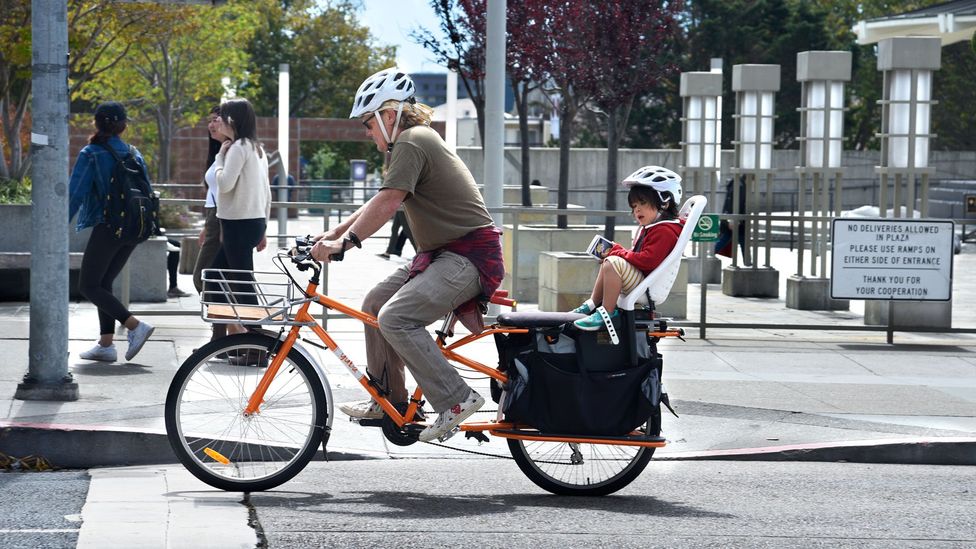
Children lead to more CO2 emissions – but they may also be hereafter environmentally-minded problem-solvers (Credit: Getty)
What we do know is that no two people have the same emissions. Although the boilerplate human releases effectually 5 tonnes of CO2 per year, each country has very different circumstances: developed nations like the U.s. and South korea have higher national averages (16.5 tonnes and eleven.five tonnes per person, respectively) than developing countries like Pakistan and Philippines (effectually 1 tonne each). Fifty-fifty within national borders, richer people have college emissions than people with less access to goods and services. So if you choose to accept this question into account, you have to remember that it'due south not but most how many children you lot accept – information technology's where (and who) you are.
9. Merely if I eat less meat or take fewer flights, that's just me – how much of a divergence tin can that really brand?
Actually, it'southward not just you lot. Social scientists have plant that when 1 person makes a sustainability-oriented decision, other people do too.
Here are four examples:
- Patrons at a Us cafe who were told that thirty% of Americans had started eating less meat were twice equally likely to order a meatless tiffin.
- An online survey showed that of the respondents who know someone who had given up flight considering of climatic change, half of them said they flew less every bit a result.
- In California, households were more likely to install solar panels in neighbourhoods that already have them.
- Community organisers trying to get people to install solar panels were 62% more than successful in their efforts if they had panels in their firm too.
Social scientists believe this occurs because we constantly evaluate what our peers are doing and we adapt our beliefs and actions accordingly. When people see their neighbours taking environmental action, like conserving energy, they infer that people like them also value sustainability and feel more compelled to act.
x. What if I only can't avoid that flight, or cut downwardly on driving?
If you simply can't make every change that'south needed, consider offsetting your emissions with a trusted green project – not a 'go out of jail free card', but another resource in your toolbox to recoup that unavoidable flight or car trip. The UN Climate Convention keeps a portfolio of dozens of projects effectually the earth you can contribute to. To find out how many emissions you lot need to 'purchase' back, you can use its handy carbon footprint calculator.
Whether you are a coffee farmer in Republic of colombia or a homeowner in California, climate change will take an impact on your life. Simply the reverse is as well true: your deportment will influence the planet for the coming decades – for better or for worse.
--
Diego Arguedas Ortiz is a science and climatic change reporter for BBC Hereafter. He is @arguedasortiz on Twitter.
Join 900,000+ Future fans past liking usa on Facebook , or follow united states on Twitter or Instagram .
If you lot liked this story, sign upward for the weekly bbc.com features newsletter , called "If You Only Read 6 Things This Week". A handpicked selection of stories from BBC Future, Civilisation, Uppercase, and Travel, delivered to your inbox every Friday.
Source: https://www.bbc.com/future/article/20181102-what-can-i-do-about-climate-change
Posted by: johnwouser.blogspot.com


0 Response to "How Can You Keep Rid Of Bokashi Waste When You Live In An Apartment"
Post a Comment